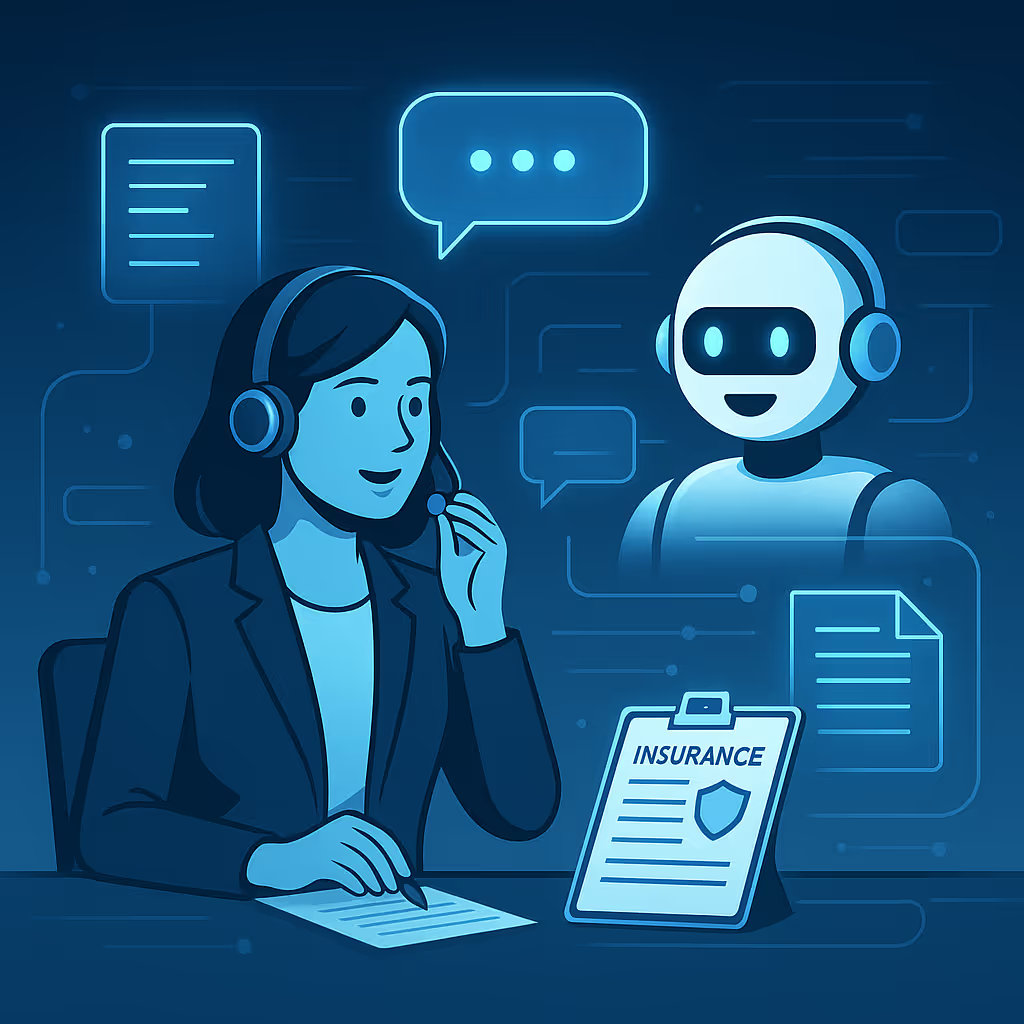Revolutionizing Insurance Communication by Automating Every Stage of Customer Interaction
In the evolving landscape of the insurance industry, efficiency is not merely an advantage—it's a necessity. The demands of modern consumers, coupled with the complexities of compliance and operational layers, have propelled insurers to rethink traditional communication strategies. Enter AI call automation: a technological breakthrough promising to transform every interaction from First Notice of Loss (FNOL) to renewals.
The Challenge of Manual Processes
Despite advancements in digital communication, many insurance providers grapple with archaic, manual processes that fail to meet the expectations of today’s digitally savvy clientele. Problems such as missed calls, delayed claims processing, and cumbersome policy renewals lead to customer dissatisfaction and operational bottlenecks. These challenges not only affect the bottom line but also jeopardize insurer reputation and customer loyalty in a competitive market.
How AI Automation Transforms Insurance Operations
AI-driven call automation offers a groundbreaking solution to these chronic issues. By utilizing sophisticated algorithms, AI systems can handle high volumes of calls rapidly and accurately, from FNOL to claims intake and beyond. For instance, AI can efficiently gather preliminary claim details and validate information, reducing the delay associated with manual input and potential human error. Tools like Fluents, a leader in AI voice automation, are at the forefront of this transformation, offering insurers real-time, compliant, and scalable solutions.
Consider a scenario where a policyholder reports a vehicle accident at odd hours. An AI system, powered by Fluents, promptly engages the caller, records necessary details, and initiates the claims process instantaneously. This not only provides peace of mind for the customer but also streamlines operations for the insurer, eradicating the traditional back-and-forth communication that stalls progress.
Operational and Ethical Implications
Implementing AI in insurance isn't devoid of its nuances. Operationally, the shift demands a restructured approach to integrating these systems seamlessly into existing processes. Questions around data security and compliance are paramount as sensitive customer information is handled. AI platforms like Fluents mitigate these concerns with robust compliance measures, ensuring data security while maintaining transparency through audit-ready transcripts.
Ethically, the rise of AI prompts an introspection into the humanization of technology. While AI offers efficiency, the need for a balance between automated processes and personal human touch persists, particularly for claims that involve emotional distress or complex negotiations. The challenge lies in designing systems that complement human empathy rather than replace it.
Where the Industry is Heading
As AI call automation becomes increasingly sophisticated, the journey of insurance communication is set to become even more seamless. We can anticipate a future where AI not only addresses current inefficiencies but also anticipates customer needs through predictive analytics and personalized interaction. By harnessing the full capabilities of AI, insurers can transcend from reactive problem solvers to proactive service agents, offering unparalleled customer satisfaction and loyalty.
In this dynamic and competitive landscape, the key to unlocking future insurance success lies in strategic technology adoption. While AI won't replace the unique insights and compassion that human agents bring, it certainly enhances their capability. As we look forward, it's clear that AI will continue to redefine the insurance industry, bridging the gap between technology and human intuition for a truly integrated customer experience.
From 10 calls a day to 85,000, Fluents scales with you. Automate globally, integrate deeply, and never worry about your call infrastructure again.

Stay Connected
Check out our latest updates, customer stories, and resources to keep leveling up with Fluents.
FAQs on AI in Insurance Call Automation
Here are some common questions about AI-driven insurance communication systems.
AI call automation revolutionizes the insurance sector by alleviating the inefficiencies tied to manual processes. Traditional methods often lead to missed calls and delayed claims, issues that AI mitigates through rapid, accurate handling of high call volumes. For example, AI systems like Fluents streamline First Notice of Loss (FNOL) by collecting and validating claim information efficiently, reducing delays from human errors. This technological advance allows for real-time interaction, crucial for maintaining customer satisfaction. Ultimately, AI transforms insurers into more effective, responsive entities, safeguarding their reputation in a competitive market.
Implementing AI in insurance necessitates careful consideration of ethical and compliance issues. As AI manages sensitive customer data, platforms like Fluents address these concerns with robust compliance measures, offering secure, audit-ready transcripts. Ethical considerations revolve around maintaining a balance between automation and human empathy, especially in claims with emotional impact. Designing systems that respect privacy and enhance customer care without replacing human agents is pivotal. Insurers must ensure transparency and protect client data while integrating AI, aligning technological advancements with ethical standards to foster trust and ethical practice.
Looking ahead, AI and human collaboration in insurance are poised to become integral to delivering superior customer experiences. As AI systems such as Fluents advance, they will increasingly handle routine tasks, allowing human agents to focus on complex, emotionally charged cases. The future promises seamless integration where AI anticipates customer needs through predictive analytics, transforming insurers into proactive service agents. By harnessing AI's capabilities, insurers can achieve unparalleled customer satisfaction and loyalty, ensuring strategic technology adoption complements human insight and compassion for a more integrated, efficient industry landscape.




